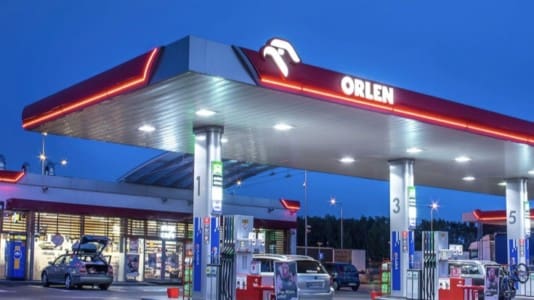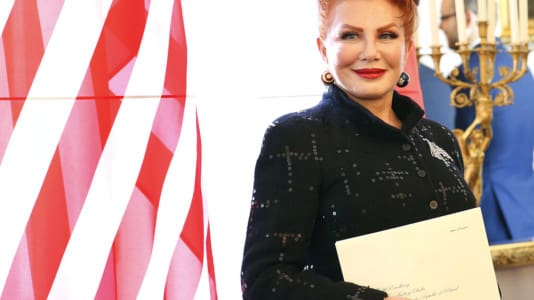A wealthy family is attempting to implement a utopian experiment with the goal of settling 70 refugee families in the quaint French town of Callac, and while no member of the family actually lives in the town, they are willing to invest millions of euros from their fortune to make their vision a reality.
Known as the Horizon Project, the scheme would be funded with money from the private Merci fund, which was created by Marie-France Cohen and is managed by her three sons. While the Cohen’s fund is reportedly spearheading the project, other financing would come from federal taxpayer subsidies and the local municipality.
The Cohens have identified 75 vacant jobs in health, trade, and agriculture in the town of approximately 2,000, which they plan to fill with refugees. Their endowment fund is designed to cover the cost of relocating the refugee families to the town and providing them with jobs, but only for 10 years. After that, the town is mostly on its own, unless authorities can secure more taxpayer money for the project.
[pp id=8084]
Despite the wealthy family’s desire to create what they describe as a multicultural “Noah’s Ark of modern times” that can be replicated in other towns, residents of Callas are resisting the project, pointing out that no one in the family will have to actually deal with the consequences of their experimental “Noah’s Ark” on their small town. That is why residents of the Brittany town of Callac have launched a citizens’ group opposed to the scheme, calling “for defending the identity of Callac,” with the group made up of Danielle Le Men, Michel Riou, and Moulay Drissi.
The individuals have sent an open letter to the mayor of Callac outlining the reasons behind their opposition.
“The objective would be to repopulate a small ‘aging’ town with migrants, to revitalize the town center and to develop economic activities. Migrants would therefore be supervised, housed, and trained, and 70 jobs would be found for them.
The arrival of 70 non-European families would totally upset the life of the municipality and the canton. Thirty-eight non-French-speaking children would be educated at the Callac school and divided into classes. This would further complicate the task of teachers.
How can you impose on the people of Callac such a project that calls into question the identity of our population and before the real cost of the project is determined?”
Given the unemployment struggles people from Callac have faced, the citizens’ group is asking why the Cohen family is not interested in helping employ the people in the town who already live there. In a petition, they write, “We believe that the millions of euros that this project would cost should be invested as a priority for the local population, via the renovation of housing, via energy aid, via the development of the town of Callac and the surrounding municipalities, to allow locals to flourish there and those who want to come and settle there without monetary assistance to do so later.”
In the group’s letter to the mayor, they also point to the French National Institute of Statistics and Economic Studies (INSEE) to validate their concerns, which states the unemployment rate in Callac was 17.6 percent for those aged 15 to 64 as of 2018. That means nearly one out of five working-age people has no job in the town, yet dozens of refugee families are being brought in and allegedly being set up with new jobs.
[pp id=38030]
The citizens are now calling for a referendum on the whole scheme, saying that citizens living in the town should be able to decide about their own future.
“An urgent consultation of the population of the municipality by referendum is essential with precise figures on this Horizon project,” reads their open letter. Such a letter could very well halt such a project, as polling from Ifop has shown that 70 percent of French citizens in general want a halt to all immigration to the country, with the same poll also showing that they believe migrants make France less safe, whlle 64 percent say that immigration has a negative impact on the country. In rural areas like Callac, conservative positions on immigration are even more prevalent.
They also point to the massive societal ills associated with areas of France that already feature large migrant populations.
“You are going to create in the middle of Brittany, in Argoat, a foreign community with all the issues related to these groups. You are going to move the problems of the big cities to the Breton countryside,” the citizens of Callac warn.
The problems of the “big cities” referred to in the letter are the levels of crime and cultural tensions reaching the point that Pierre Brochand, who served as the head of France’s top intelligence agency from 2002 to 2008, warning of civil war if France does not halt mass immigration. He pointed to attacks on police officers, murders, growing social tension, divisions over schooling, and cases of “urban guerilla warfare” in migrant neighborhoods as all signs that multiculturalism in France has failed.
[pp id=16366]
“All ‘multicultural’ societies are doomed to more or less deep rifts,” explains Brochand, who was one of the longest-serving directors of the DGSE, an agency he headed for six years and which is the French equivalent of the American CIA and the British MI6. “In such a situation, it happens that minorities are violent winners, and majorities placid losers.”
While all multicultural societies may be “doomed” to deep rifts, the same is not necessarily true for the wealthiest in society. In Paris, where the Cohen matriarch lives, wealthy parents are racing in to private schools at a record rate to escape diversity, leaving the poorest French to deal with the problems associated with multiculturalism. Another former French intelligence chief estimates that there are 1,513 “lawless neighborhoods” in France.
“These districts are established on the territory of 859 municipalities and bring together approximately 4 million inhabitants. It is therefore almost 6 percent of the French population who live outside the law and outside the cultural and political practices of the national community,” said Alain Chouet.
The fact that over 250 French people have lost their lives due to Islamic terrorist attacks since 2015 also contrasts sharply with other countries like Hungary, which has rejected mass immigration, a move security analysts have credited with making terrorist attacks in Hungary non-existent.
[pp id=27086]
The citizens’ group is also asking for more information about the project. They write that given the unemployment problems facing people in the area, they want evidence that the jobs promised to the migrants even exist.
“Indeed, where are the 70 jobs you foresee for these migrants?” they ask.
A grandiose social engineering project
What would the actual plan look like? The municipality plans to acquire the premises of the former Saint-Laurent school in order to settle the first refugees there. A few would also be placed in various locations in the town, allegedly to promote diversity. During a public meeting on April 14, 2022, the Cohen brothers and the director of the funds presented architectural models for what they claim is the “revitalization” of the town, which were produced by students from the National School of Architecture in Rennes.
Back then, Horizon Project was describing itself as “a multicultural village populated by refugee and non-refugee inhabitants who will settle there permanently. We are not talking here about charity, but about building a common future with men and women who, each with their uniqueness, will bring to this territory: proximity, mobility, employment, diversity, education, health, culture.”
Ouest-France also reported that the day after the public meeting, when the agreement between the Cohen family and the Callac town hall was signed, the deputy for the neighboring town of Guingamp, Yannick Kerlogot, said he was “extremely confident in the future.” Kerlogot belongs to Emmanuel Macron’s left-wing La République En Marche! (LREM). In February of this year, Macron said that mass immigration from Africa and the Middle East can “make France greater.”
The regional councilor, Arnaud Toudic, affirmed that “the region will support this project” and proclaimed, “You are creating a new world.”
The Cohen family
As noted above, the Cohen family does not live in Callac. The question then arises: Where do they live and what is driving their desire to transform this one town?
Marie-France Cohen is no stranger to ‘high society.” She has been profiled in The Socialite Family publication, which features the tagline: “A sample of cool and smart families.” She has also been profiled in the New York Times, which focused on her business partnerships with her late husband and luxurious lifestyle.
The couple bought two homes with the profits from Bonpoint’s sale — a 17th-century hôtel particulier and carriage house built around a lush courtyard garden in the Seventh Arrondissement, and a country manor on seven acres at the edge of the forest near Fontainebleau. But instead of turning them into formal showcases, the Cohens made them havens of comfortable yet refined taste, inviting and unpretentious, with room for their children and grandchildren.
She has also been featured in Kinfolk, which writes:
So begins a glimpse into a Paris filled with easy elegance and beauty on every boulevard. Born in Aix-en-Provence to an aristocratic family, Marie-France is an unabashed aesthete who has built an empire on her appreciation for such detail. After she and her late husband launched beloved children’s label Bonpoint in 1975, the pair became leading figures in Paris’ elite fashion and design circles. Their status was cemented when they went on to establish concept store Merci in the fashionable Marais district in 2009.
The Cohen family’s lifestyle may contrast greatly with the lives of most French citizens, but the Cohens are now playing an outsized role in the lives of seemingly ordinary people halfway across the country. With the Great Replacement serving as a major theme during the recent presidential contest in France, cases such as the one in Callac will do little to dampen the idea that the elite of society are engaged in a demographic replacement project, with French intellectuals, politicians and public figures increasingly pointing to the existence of the Great Replacement. What is happening in Callac is not an isolated incident, with numerous government schemes across the Western world in the process of bringing refugees and migrants to small towns and rural areas where only a limited number of people can resist, such as the recent case in Britain involving attempts to move 1,500 refugees to a small Yorkshire village of only 600 people, which has been met with fierce resistance from the local population.
Many proponents of the Great Replacement argue that it is primarily driven by a detached or even malicious elite, both in business and within the government, who have varying ideological and financial reasons to enact a broad demographic transformation in Western countries – a transformation increasingly supported by both data and simple observation. Citizens in Callac opposed to the initiative in their own town say that what is happening to them is just another case of wealthy individuals imposing their own worldview on a town far removed from the wealthy enclaves of Paris. They argue that if the experiment goes wrong, Callac will have to live with the consequences, not the Cohens.






